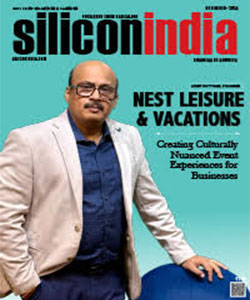FM Sitharaman Introduces New Income Tax Bill in Lok Sabha
By
siliconindia | Thursday, 13 February 2025, 06:08:59 PM IST

Finance Minister Nirmala Sitharaman tabled the new Income Tax Bill in the Lok Sabha on Thursday after securing cabinet approval. The bill, set to replace the Income Tax Act of 1961, aims to modernize and simplify India's tax laws, making compliance easier for taxpayers.
During its introduction, Sitharaman requested Speaker Om Birla to refer the bill to a select committee of the House. Despite opposition members raising objections, the House passed a motion by voice vote to introduce the bill. The proposed committee will review the draft legislation and submit its report before the first day of the next session. The Speaker will determine the panel's composition and procedural rules.
The new bill does not propose any fresh taxes but focuses on streamlining tax regulations and eliminating legal complexities. It aims to make tax provisions more accessible by using simpler language and shorter clauses. The government has stated that the new law will be 50% shorter than the current Income Tax Act, which currently comprises 298 sections across 23 chapters. Additionally, the bill seeks to remove outdated provisions, making the tax code easier to understand without requiring professional consultation.
A key objective of the proposed law is to reduce tax-related litigation. By simplifying the legal framework and introducing lower penalties for certain offences, the bill aims to foster a taxpayer-friendly environment. The legislation also prioritizes clarity through structured tables and formulas, making tax calculations more transparent.
If enacted, the new tax system will be applicable from the financial year 2025-26, with taxpayers falling under its purview from the assessment year 2026-27. Himanshu Parekh, Partner, Tax at KPMG, described the bill as a 'significant overhaul' of India’s tax framework. He noted that the proposed 622-page legislation replaces intricate legal jargon with clear language, reducing complexity for taxpayers.
The bill introduces a 'trust first, scrutinize later' principle, aligning with the government's vision of 'minimum government, maximum governance' It also grants the Central Board of Direct Taxes (CBDT) greater authority in tax administration, allowing it to implement digital monitoring systems and update regulations without frequent legislative changes. These measures aim to improve efficiency and reduce bureaucratic delays.
Set to take effect from April 1, 2026, the new Income Tax Bill marks a milestone in India’s tax reforms. By focusing on simplification, transparency, and ease of compliance, the legislation seeks to create a more efficient and taxpayer-friendly system, ensuring a smoother transition from the existing tax framework.
Read More News :
Maximise Your Tax Savings with Section 80C of the Income Tax Act
Too Late to Order? Not with FlowerAura's Same-Day Valentine's Gift Delivery!



